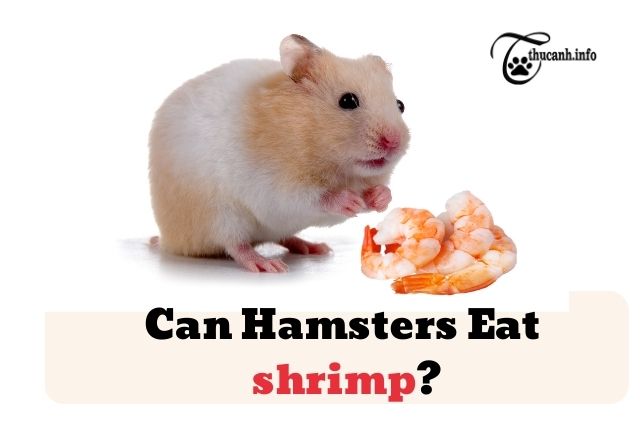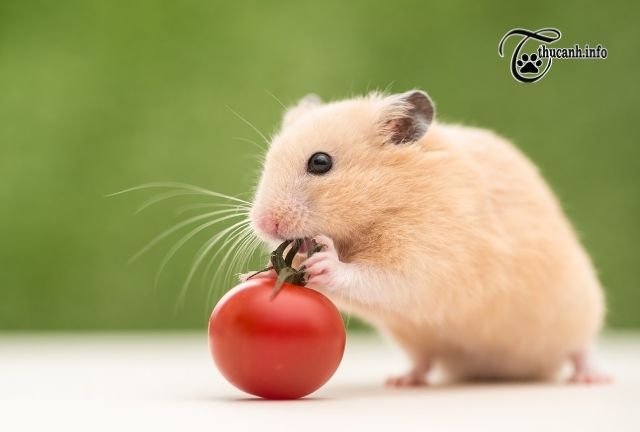As a responsible hamster owner, you might be curious about sharing some of your favorite foods with your furry friend. Shrimp, a delicious seafood delicacy, may be one of those foods you’re considering. But can hamsters eat shrimp? In this comprehensive guide, we will explore the answer to this question, the potential benefits, risks, and proper feeding guidelines to ensure your hamster’s well-being.

The Benefits of Shrimp for Hamsters
1. Can hamsters eat shrimp?
Yes, hamsters can indeed eat shrimp. However, it’s crucial to exercise caution and moderation. While shrimp can be a healthy treat for your hamster, overfeeding or serving improperly prepared shrimp can lead to health issues. Understanding the nutritional value and potential risks associated with shrimp consumption will help you make informed decisions.
2. The Benefits of Shrimp for Hamsters
Shrimp offer several key nutrients that can benefit your hamster’s health:
- Protein Source: Shrimp serve as an excellent source of protein for hamsters. With approximately 20g of protein per 100 calories, shrimp provide a substantial amount of this essential macronutrient. Protein plays a crucial role in the growth and repair of cells and tissues in hamsters, making it vital for their overall development and health.
- Omega-3 Fatty Acids: Shrimp contain healthy omega-3 fatty acids, which offer various health benefits for hamsters. These fatty acids have been linked to improved joint health, bolstering the immune system, supporting cognitive function, and reducing cholesterol levels. Including omega-3 fatty acids in a hamster’s diet can contribute to their overall well-being and longevity.
- Vitamins and Minerals: Shrimp are rich in essential vitamins, such as vitamin A, B12, B3, B2, D, and E, which play crucial roles in various physiological processes in hamsters. Additionally, shrimp provide important minerals like iron and iodine that are vital for the proper functioning of a hamster’s body.
3. Potential Risks and Precautions

Potential Risks and Precautions when Hamsters eat Shrimp
While shrimp can be beneficial, certain risks need to be considered. Feeding raw or undercooked shrimp to your hamster can lead to food poisoning and gastrointestinal issues. Shrimp are also high in protein, and overconsumption can strain the kidneys and potentially lead to renal failure over time. Therefore, it’s essential to offer shrimp in moderation, as a special treat, and closely monitor your hamster’s reaction to it.
4. How To Feed Shrimp To Your Hamster
Feeding shrimp to your hamster requires careful attention to ensure their well-being. Follow these guidelines to ensure a safe and enjoyable experience:
- Portion Sizes: Start by offering only a tiny amount of shrimp to your hamster. A small portion, about the size of a teaspoon, is sufficient to introduce this new food.
- Gradual Introduction: When adding shrimp to your hamster’s diet, do so gradually. Observe their reaction and check for any signs of discomfort or allergies.
- Thoroughly Cooked Shrimp: Always cook shrimp thoroughly and avoid any seasonings or additives. Plain, unsalted shrimp is the safest option for your hamster.
- Monitor Eating Habits: Keep a close eye on your hamster’s eating habits and ensure they are comfortable with shrimp. If any adverse reactions occur, discontinue feeding shrimp and consult a veterinarian.
5. What Else Can Your Hamster Eat? Exploring Other Safe Foods
To ensure your hamster’s diet remains well-balanced and nutritious, consider incorporating a variety of safe and wholesome foods:
5.1.Fresh Fruits and Vegetables

Offer a selection of fresh fruits and vegetables to provide essential vitamins, minerals, and fiber.
Offer a selection of fresh fruits and vegetables to provide essential vitamins, minerals, and fiber. Safe options include apples, carrots, broccoli, and more. Remember to serve them in moderation to prevent overconsumption.
5.2. Whole Grains and Seeds
Whole grains like oats and brown rice, along with nutritious seeds such as flaxseeds and pumpkin seeds, are valuable additions to your hamster’s diet. These foods offer essential nutrients and support their overall health.
5.3. Cooked Lean Meats
Besides shrimp, cooked lean meats like chicken and turkey can serve as a healthy protein source for your hamster. Make sure the meat is thoroughly cooked and free from seasoning or additives.
5.4. Occasional Treats
While shrimp can be a special treat, other occasional treats like plain, unsweetened yogurt and low-fat, mild cheeses can also add variety to your hamster’s diet. Remember to offer these treats sparingly to avoid any adverse effects.
6. FAQs About Hamsters Eating Shrimp

What Else Can Your Hamster Eat?
6.1. What other types of seafood can hamsters eat?
Hamsters can eat small amounts of other seafood such as fish or prawns. However, it is important to ensure that the seafood is cooked thoroughly and cut into very small pieces.
6.2. Can hamsters eat shrimp tails?
No, hamsters should not be fed shrimp tails as they are difficult to digest and can cause digestive problems.
6.3. Are there any vegetables that hamsters cannot eat with shrimp?
Hamsters can eat most vegetables in moderation when fed with shrimp. However, it is important to avoid feeding them any vegetables that are high in oxalic acid, such as spinach, as it can inhibit calcium absorption.
6.4. How often can I feed my hamster shrimp?
Shrimp should only be given as an occasional treat once or twice a week in small quantities.
6.5. What are the signs of an allergic reaction in hamsters?
Signs of an allergic reaction in hamsters can include difficulty breathing, swelling, and itching. If you notice any of these symptoms after feeding your hamster shrimp, seek veterinary attention immediately.
Conclusion
Can hamsters eat shrimp? This is a common question among pet owners who are looking for new and interesting foods to offer their furry friends. Hamsters can enjoy shrimp as a treat, but moderation is key. Understanding the nutritional value and potential risks associated with shrimp consumption empowers you to make informed choices for your pet’s health. By following proper feeding guidelines and prioritizing a balanced diet, you can ensure your hamster’s happiness and well-being. Remember to consult with a veterinarian for personalized advice and enjoy the delightful moments of sharing safe and enjoyable meals with your adorable hamster companion.
Source: Thucanh.infor


